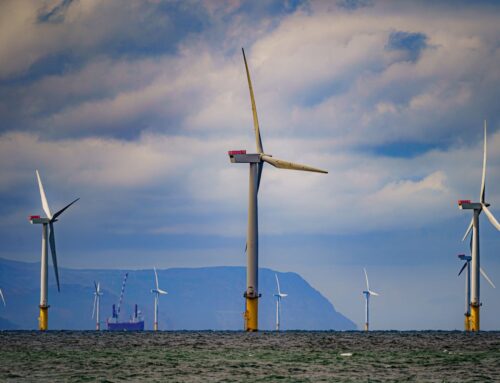Marine heatwaves to become more frequent off UK and Irish coasts, experts say
October 7, 2025
The unprecedented marine heatwave of 2023 was in line with climate modelling, research shows, as scientists warn such events will become more frequent.
The “unheard of” heatwave off the UK and Irish coasts during a summer of 40C temperatures raised concerns that fish, shellfish and kelp would not be able to survive.
During the heatwave, temperatures in the shallow seas around the UK, including the North Sea and Celtic Sea, reached 2.9C above the June average for 16 days. The extended period of time put sea life at risk of death.
A study by the University of Exeter, the Met Office and the Centre for Environment, Fisheries and Aquaculture Science (Cefas) said there was about a 10% chance of a marine heatwave of this scale occurring each year, despite the unprecedented nature of the 2023 heatwave.
The study, published in the journal Communications Earth & Environment, used climate models to assess the likelihood of heatwaves at the June 2023 level or above and found that in the Celtic Sea – off the south coast of Ireland – the annual chance of such a heatwave rose from 3.8% in 1993 to 13.8% now. In the central North Sea, the chance rose from 0.7% in 1993 to 9.8%
While the full disruption to the marine ecosystem caused by the heatwave has not been assessed, scientists know it has significantly disrupted phytoplankton blooms. Heatwaves can stress marine species and increase concentrations of bacteria that can harm humans.
Dr Jamie Atkins, who led the study during his PhD at Exeter, and is now at Utrecht University, said: “Our findings show that marine heatwaves are a problem now – not just a risk from future climate change.”
Prof Adam Scaife, a co-author of the study from the University of Exeter and the head of long-range forecasting at the Met Office, said: “This is another example of how steady climate warming is leading to an exponential increase in the occurrence of extreme events.”
The marine heatwave turbocharged the temperatures on land in Britain and Ireland and also contributed to heavy rain.
Atkins said: “Warmer seas provide a source of heat off the coast, contributing to higher temperatures on land.
“Additionally, warmer air carries more moisture – and when that cools it leads to increased rainfall.”
Prof Ana M Queirós at the Plymouth Marine Laboratory said: “Long marine heatwave periods push wildlife into a situation where seasonal ecological processes, such as reproduction, and even offspring hatching, are tricked into taking place at a time when other environmental conditions are not suitable.
“This is certainly a very bad sign for the health of our planet and our ocean, and one likely to worsen unless we make significant strides to cut emissions.”
Search
RECENT PRESS RELEASES
Related Post



